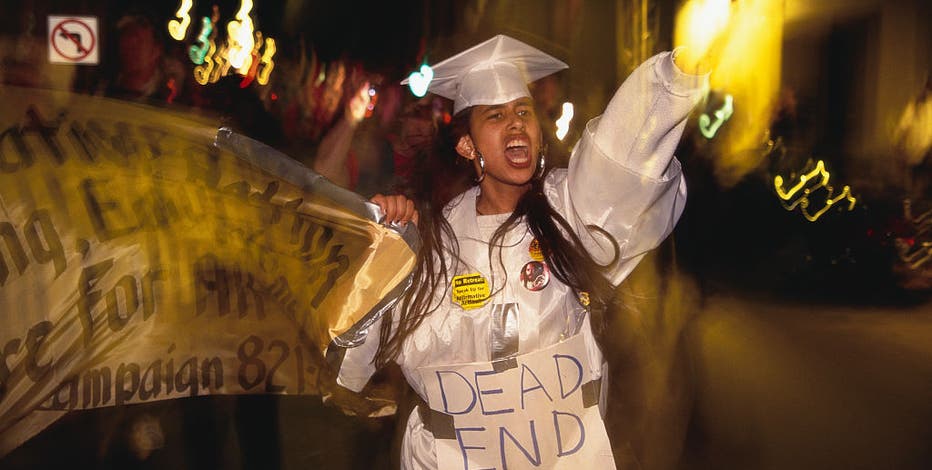- Joined
- Dec 6, 2010
- Messages
- 33,432
- Reaction score
- 5,709
Supreme Court will consider challenge to affirmative action in college admissions
The case, naming Harvard and the University of North Carolina, is the most serious threat in decades to affirmative action at public and private colleges and universities.
By Pete Williams | Jan. 24, 2022
The case, naming Harvard and the University of North Carolina, is the most serious threat in decades to affirmative action at public and private colleges and universities.
By Pete Williams | Jan. 24, 2022
WASHINGTON — The Supreme Court agreed Monday to hear challenges to the admissions process at Harvard and the University of North Carolina, presenting the most serious threat in decades to the use of affirmative action by the nation's public and private colleges and universities.
Despite similar challenges, the court has repeatedly upheld affirmative action in the past. But two liberal justices who were key to those decisions are gone — Anthony Kennedy and Ruth Bader Ginsburg. Their replacements, Trump appointees Brett Kavanaugh and Amy Coney Barrett, are conservative and considered less likely to find the practice constitutional.
In the latest case, groups backed by a longtime opponent of affirmative action, Edward Blum of Maine, sued Harvard and UNC in federal court, claiming that Harvard's undergraduate admissions system discriminated against Asian American students and that UNC's discriminated against both Asian American and white students. Lower courts ruled that the schools' limited consideration of race was a legitimate effort to achieve a more diverse student body.
The lawsuits were targeted to challenge the admissions process at both a private and a public university.
The Supreme Court has long barred racial quotas in admissions. But it has allowed schools to consider a student's race to be one "plus factor" among many other qualities, provided the admissions process looks at the overall qualifications of applicants and uses race no more than necessary to achieve a level of diversity.
The challengers in both cases, Students for Fair Admissions, urged the justices to overrule the court’s 2003 decision on affirmative action, which upheld the University of Michigan's use of race as a plus factor and served as a model for similar admissions programs nationwide.
That decision "endorsed racial objectives that are amorphous and unmeasurable," the challengers said in asking the Supreme Court to take their appeal. The Constitution requires equal protection and contains no exceptions, they said, contending that Harvard admits Asian Americans at lower rates than whites and values Black or Hispanic ethnicity more highly.
"If a university wants to admit students with certain experiences (say, overcoming discrimination), then it can evaluate whether individual applicants have that experience," their brief said. "It cannot simply use race as a proxy for certain experiences or views."
If the Supreme Court did overrule its 2003 precedent, affirmative action programs would be in serious jeopardy nationwide.
"Mandating race-blind admissions programs would undermine those universities' ability to engage in the kind of individualized review that yields a class that is both diverse and excellent," Harvard's lawyers told the court.
They said the university pursues many kinds of diversity in admitting the freshman class, including academic interests, beliefs, political views, geographical origins and family circumstances, as well as racial identity. The process does not automatically reward a plus to students from a particular race, their brief said.
In ruling for Harvard, a federal district court judge said abandoning considerations of race "would cause a sharp decline in the percentage of African American and Hispanic students."
The Supreme Court will likely hear the cases in its next term, which begins in October.
https://www.nbcnews.com/news/amp/ncna1287915





